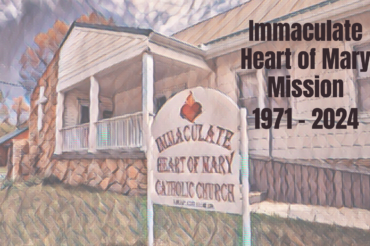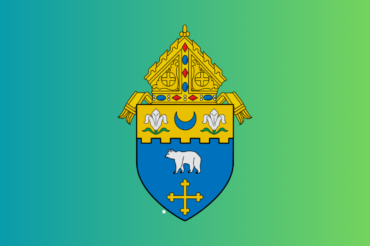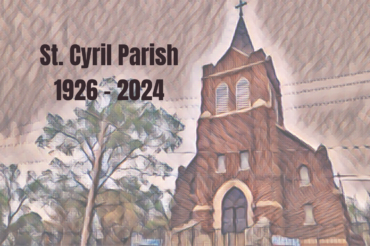Stumbling Out of the Gate
There is a term, borrowed from horse racing, that aptly describes getting off to a bad start: “stumbling out of the gate.” It describes what happens to some horses when the bell rings and the gates fly open and the horses charge forward, only to stumble and sometimes end up on their knees. The term could fittingly be used for what happened last week at the annual meeting of the United States Conference of Catholic Bishops that I attended in Baltimore.
There were exceedingly high hopes from laity and clergy alike that this meeting would lead to some decisive action on the part of the bishops to address the harm that has been caused by the events since the summer in the wake of the scandals surrounding ex-Cardinal Theodore McCarrick, the report of the Pennsylvania Grand Jury, and the allegations of Archbishop Viganò, the former papal nuncio to the United States.
In preparation for the meeting, various committees of the USCCB prepared proposals and documents for our consideration in anticipation of a vote of approval. These included: 1) Standards of Accountability for Bishops, 2) a proposed Special Commission made up primarily of lay people for the Review of Complaints and Allegations against Bishops for violations of these Standards of Accountability, and 3) a Protocol regarding how to deal with bishops who have been removed or have resigned from office due to sexual abuse, misconduct or negligence in responding to these matters. In addition, we were provided a document proposing additional mechanisms for people to report a bishop with a claim of violation of these Standards of Accountability. Along with the other bishops, I had studied these materials before the meeting and went to Baltimore prepared to support them with my vote; but as the meeting opened we were informed that the Holy See had asked that we not put these to a vote prior to a two-day meeting this coming February of all the heads of the conferences of bishops worldwide with Pope Francis in order to ensure a unified global approach to this problem. And so, we stumbled out of the gate.
Of course, there was great disappointment and frustration at this unexpected turn of events. Perhaps in hindsight this was unavoidable given that the Church in America is simply one portion of a Church that counts around 1.3 billion members worldwide. And yet, since his pontificate began, Pope Francis has emphasized collegiality and synodality, terms which describe a decentralized approach to addressing local pastoral problems and issues. If there ever was a time for this to be realized it was last week in Baltimore. Much of the Church in other parts of the world has been slow to acknowledge that the terrible evil of sexual abuse is even an issue, nor realize how profound the wounds are for survivors of these evils, and how these untended wounds have infected the entire Body of Christ and hampered its mission.
Realizing the need for effective action and the need for change in institutional structures to better respond to handling sexual abuse going forward, I joined the other Missouri Bishops in issuing a letter and statement on October 6th outlining a set of principles for the USCCB to consider as it was developing proposals for our meeting. Central to our proposal was the greater inclusion of good and wise lay persons, who are eager to pitch in to help solve this problem. In fact, I believe the bishops will not be able to solve this problem without the laity’s involvement. We need the laity to be involved to hold us accountable and to help restore our credibility. This is already working in important ways at the local diocesan level, as for example with our Independent Review Boards.
One of the only votes on this topic that was held on the floor during the meeting was a proposal that the USCCB encourage the Holy See to make the findings of the McCarrick investigation public. People rightly want to know who was complicit in allowing McCarrick to rise through the ranks of the hierarchy with knowledge of his immoral and abusive actions. In an unusual turn of events, the measure was defeated, in large part because it was learned that the Holy See had already issued a pledge to the same effect. In any event, lay people also need to be a part of the investigation of the Theodore McCarrick matter. Without their involvement, the results of this investigation may not be seen to be independent and complete enough to be credible. I am also concerned that this investigation will not be accomplished with the urgency and promptness it deserves. It is not a search for a needle in a haystack. It should be completed, and soon, for the good of the Church’s communion.
While there were no votes at the meeting as had been planned and hoped for, there was some progress. In frank discussions both on and off the floor of the meeting, we were able to discuss the proposals we were supposed to vote on and better realize both the strengths and flaws of each. Other ideas that might not have been considered also emerged, such as an alternative to the Special Commission which would make use of existing structures at the local level. Along with these topics, we also discussed in a wide-ranging manner: our relationship with the successor of Saint Peter and the Holy See; the issue of homosexuality and the impact of the sexual revolution, especially during the decades when the vast majority of the crimes against minors were committed; the fact that the Safe Environment policies in place since 2002 nationwide have been extremely effective in protecting children and youth over the past 16 years; the need to keep victims and their healing foremost in our considerations; the need for consistent standards in the use of terms when publishing lists of accused clergy; the need for clear standards in addressing clergy sexual misconduct with adults.
Only time will tell if the events of the past week were a part of the hidden work of the Holy Spirit or simply an example of institutional inertia, or both. As the papal nuncio, Archbishop Pierre, reminded us in his opening address, “if the Church is to reform herself and her structures, then the reform must spring from her mission of making known Christ, the Son of the Living God.” None of our changes in structure or new systems of accountability will be enough to enable us to live up to the high calling we have received in Christ. Each bishop must recommit himself to holiness, integrity, and to the mission of the Church, striving to do the right thing in his own diocese. Horses (and bishops) that stumble out of the gate must get up and keep going forward.
Click here to read the Missouri Bishops’ letter and statement on addressing abuse.
+ Most Reverend James V. Johnston, Jr.
Bishop of Kansas City-St. Joseph
Catholic Key, November 23, 2018 issue
Pope Francis’ November Prayer Intention
That the language of love and dialogue may always prevail over the language of conflict.
Bishop Johnston’s November Prayer Intention
For truck drivers, train engineers, airline pilots, flight attendants and terminal workers, bus drivers, cab drivers, and all those who make their living and serve others in the transportation professions.





